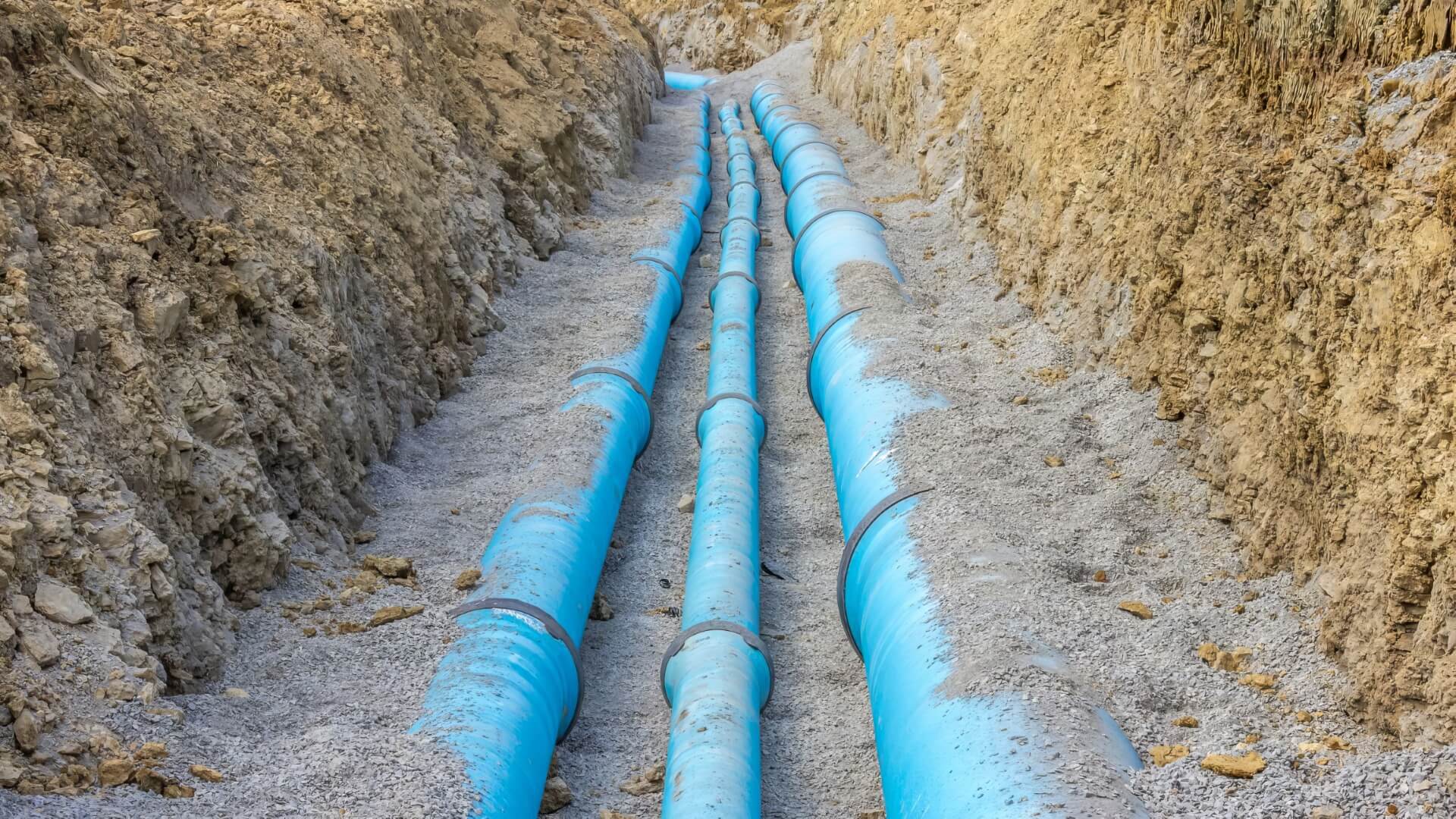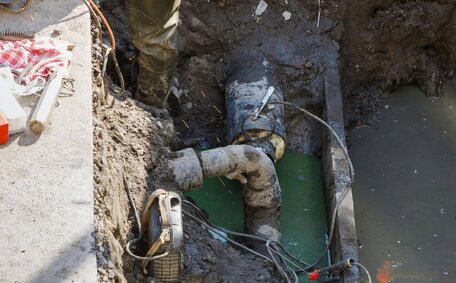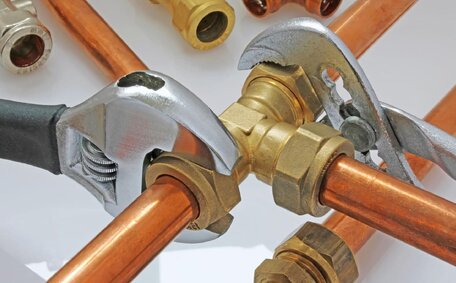Understanding Dishwasher Clogs: Is It an Emergency?
Dishwashers are essential for water-efficient dish cleaning in West Pennant Hills residences, but clogs can impede their efficiency.
At first, a clogged dishwasher may seem like a routine plumbing issue. But certain signs can indicate a larger problem that requires immediate attention to prevent water damage.
The most common causes of dishwasher clogs include:
- Food debris buildup
- Grease accumulation
- Objects blocking the drain line
- A malfunctioning pump
Many clogs can be resolved with simple DIY methods like using a zip tool to remove debris or flushing with vinegar. However, if standing water begins to flood your kitchen, it’s likely a sign of a more complex plumbing problem. A clogged dishwasher is an emergency if you notice:
- Water overflow inundating your kitchen
- The dishwasher overflowing with unclean water
- Presence of sewage water
- Strong foul odours
A clogged dishwasher accompanied by any of these red flags indicates you should immediately turn off the water supply and call a professional West Pennant Hills plumber.
Ignoring a clog can quickly result in extensive water damage in your home. By identifying emergency signs early, you can get ahead of a small issue before it becomes catastrophic.
Preventing Clogs
Although some clogs happen unexpectedly, frequently they stem from incorrect use of the dishwasher over time. You can minimise your chances of dealing with a clogged dishwasher by:
- Scraping dishes before loading
- Using vinegar as a regular cleaner to dissolve buildup
- Operating the dishwasher only when it is fully loaded
Incorporating these preventative methods will keep your dishwasher running efficiently for years to come.
Early Signs of a Clogged Dishwasher
A clogged dishwasher often provides advance warning before leading to a full-on plumbing emergency. Being attentive to subtle changes in your dishwasher’s performance can help catch a potential clog early. Some signs to monitor include:
- Longer wash cycles: As debris obstructs the drain line, Your dishwasher can only work harder to force out water. Extended cycle times often signal blockages and possible issues within the drain pathways.
- Gurgling noises: Listen during the drain segment of your dishwasher’s cycle. Bubbling or gurgling suggests drain issues.
- Accumulations of residual water: Check the base of your dishwasher after a finished cycle. Any remaining water suggests there no proper drainage happening.
- Unclean dishes: If dishes consistently emerge still soiled, your dishwasher may struggle circulating water adequately to clean properly.
Being alert to these signs can help you address a clog early and prevent overflow or water damage. Typical DIY methods include:
- Manually removing obstacles from your drain line
- Employing a plunger or drain snake to aggressively clear blockages
- Running vinegar and/or baking soda solutions through the system
If you’re regularly noticing these warning signs, enlisting a certified West Pennant Hills plumber can expertly resolve underlying problems.
Troubleshooting Dishwasher Drain Issues
When you spot signs of a clogged dishwasher drain, several troubleshooting actions can be taken before consulting a professional plumber:
- Check the drain filter: Your dishwasher has a filter to catch debris. Remove it and clean out any food particles or buildup.
- Inspect the drain hose: Kinks in the hose can obstruct proper drainage. Straighten the hose if necessary.
- Confirm connections: Ensure the drain hose is firmly connected from your dishwasher to your sink drain or garbage disposal.
- Clear away debris: Use a zip tool or bent wire to clear out any obstructions from your drain line.
- Check the drain pump: Issues with the pump impeller can prevent adequate water flow. Test your pump per the manufacturer’s instructions.
If simple fixes don’t resolve the clogged dishwasher, contact your local plumber to check for problems involving your home’s plumbing system. Additionally, contemporary dishwashers usually have built-in diagnostics to flag drainage issues.
Regular use of a dishwasher cleaner can also reduce the incidence of drain clogs.
DIY Fixes for a Dishwasher Not Draining
If your dishwasher isn’t adequately draining water, there are several DIY methods you can try before calling a professional West Pennant Hills plumber:
- Check the air gap: Locate the plastic air gap, typically found on your sink top near the faucet. Unscrew the cap and remove any debris.
- Clean the drain hose: Unplug the drain hose from your garbage disposal or sink drain. Use a zip tool to pull out food particles or grease buildup.
- Clear the garbage disposal: If connected, run your disposal first to flush out obstructions. You can also use a 1/2 cup baking soda and vinegar treatment.
- Rectify any twists in the drain line. Any curves or crimps in your drain hose clog can enable blockages to form. Straighten the hose to remove such obstructions.
Often, these basic DIY steps will reinstate proper drainage in your dishwasher. However, if pooling water persists or the dishwasher can’t finish cycles, contact a professional plumber for an expert inspection of your home’s plumbing.
Maintaining Dishwasher Health: Prevention Tips
Implementing some simple preventative measures can go a long way towards maintaining your dishwasher’s health and avoiding clogs:
Regular Maintenance
Perform monthly inspections of key components like the filter, drain hose, and door gasket to prevent buildup. Clean any debris and run a dishwasher cleaner to prevent accumulation.
Mindful Loading
Remove large food scraps from your dishes prior to loading. Arrange items so water can easily access all surfaces for cleaning. Check manufacturer instructions so as not to overpack.
Proper Rinse Aid Use
Refill rinse aid as needed for effective water runoff and to avoid spotting. But don’t overfill as excess rinse aid can lead to increased soap suds and drainage issues.
Garbage Disposal Care
Run your garbage disposal before each dishwasher cycle if they share a connection. Monthly cleaning with baking soda or vinegar can prevent grease accumulation.
Regular maintenance using these steps will ensure your dishwasher’s longevity and cleaning efficiency.
When to Call a Professional Plumber for Your Dishwasher
Though minor clogs can often be resolved with DIY methods, certain situations require immediate assistance from a professional plumber:
- Water overflow inundating your kitchen: Standing water seeping into living spaces risks extensive damage and calls for immediate repair.
- Persistent clogs reappearing: If clogs reoccur shortly after clearing, a larger issue likely exists needing expert diagnosis.
- Sewage water presence: Grey water with foul odours indicates sewer line involvement requiring urgent professional help.
Should DIY solutions not fix the dishwasher function, it’s crucial to seek professional help before the issue escalates. As West Pennant Hills’ premier plumbing provider for over 10 years, West Pennant Hills Plumbing offers prompt 24/7 service. Our licenced technicians have the expertise to accurately identify dishwasher drainage issues and restore full cleaning performance.
We specialise in:
- Eliminating various household clogs and blockages
- Installing and repairing dishwashers
- Fixing or replacing damaged drain lines
- Conducting modifications to water heaters, sinks, and pipes
Don’t ignore water leaks or standing water, as these can lead to significant flooding in your home. If self-help measures don’t unclog your dishwasher, reach out to our plumbing team for swift intervention.






